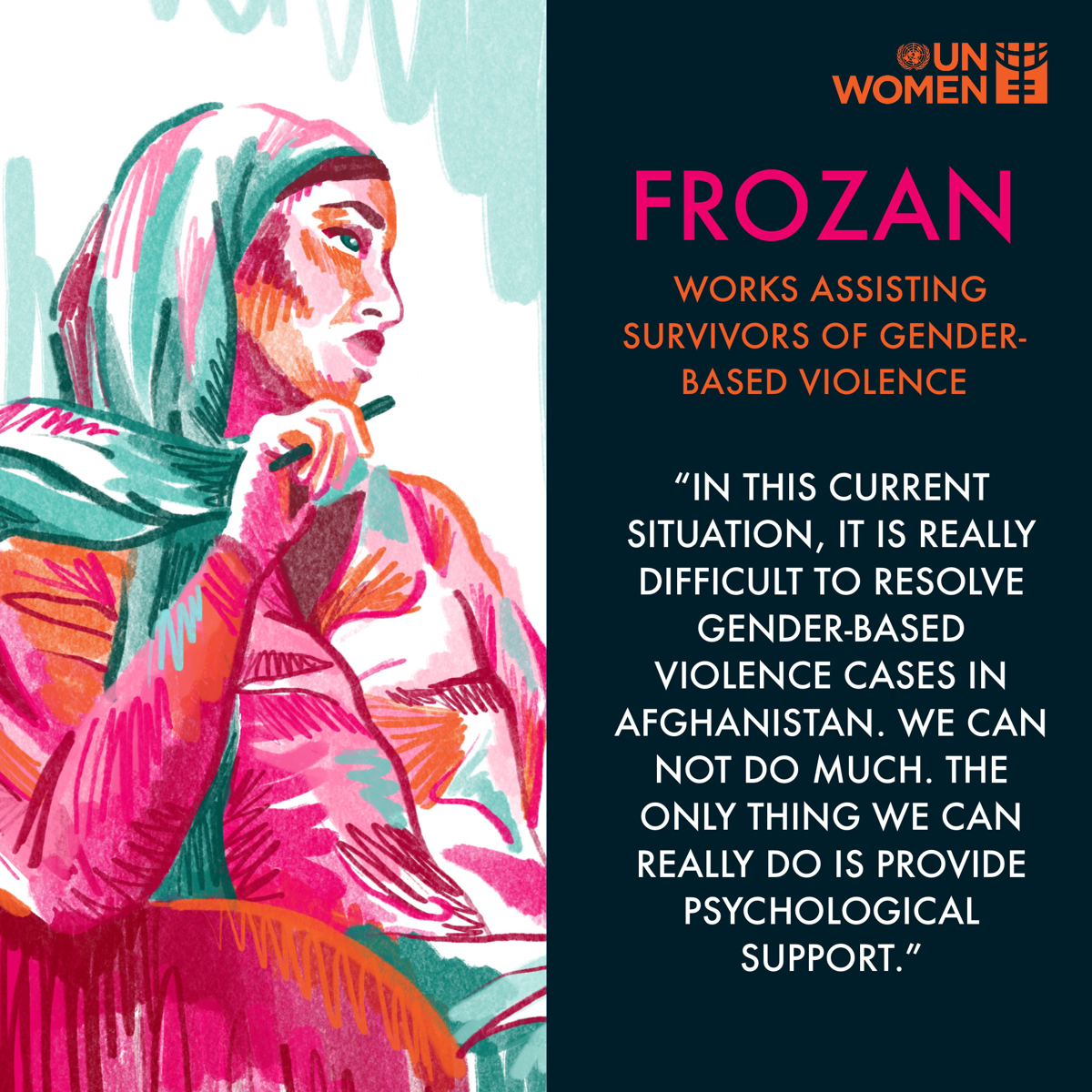Take Five: “In this current situation, it is really difficult to resolve GBV cases in Afghanistan”
Date:
Frozan[1] works for an Afghan-women-focused organization that seeks to assist survivors of gender-based violence. During the 16 Days of Activism, she recounts the countless challenges they face.

What are you able to do to assist GBV survivors?
In the current situation, it is very difficult to deal with these cases, and there are a lot of GBV cases. We have a legal adviser and a psychologist who can help survivors of violence. Our activities cover a number of provinces. We had at least 27 GBV cases in the last quarter across these locations. We also just held a conference with 30-some women on how GBV cases have been solved.
Are there any particular GBV cases that have shocked you?
There was a woman who had just lost her husband and had to live with her brother-in-law, but he just wanted to abuse her. She came to our organization for a consultation and psychological support. Because the woman lived in the neighbourhood, we could also send colleagues to her house, to provide psychological help to boost her confidence.
Besides counselling, what other kinds of support do you offer?
In the case of the widow, we also gave her legal advice and informed her of her rights. We informed her about inheritance. We also advised the woman to raise her voice to say ‘no’ if her brother-in-law tried to attack her again, because if her case ever does get to court, they will blame her for staying silent.
How difficult is it to help survivors of violence in Afghanistan today?
In this current situation, it is really difficult to resolve GBV cases in Afghanistan. We cannot do much. The only thing we can really do is provide psychological support. If we encourage survivors to go to court, the cases will probably not go anywhere. We do not get many GBV cases because most of the time, survivors keep quiet because they know they will not get anything as a result. But we offer trainings and activities to keep them engaged. And we get cases referred to us by other organizations.
What is the biggest challenge that women in Afghanistan are facing today?
All these limitations and bans on women. Why do women have all our rights restricted: to be able to work, go to university, or lead an organization? Why do the Taliban use women as the first weapon for their policies? Today, I defend the rights of myself and other women, but maybe one day I will not be able to. We are not happy with the way the international community has been dealing with the Taliban.
____________
[1] Name changed to protect her identity.